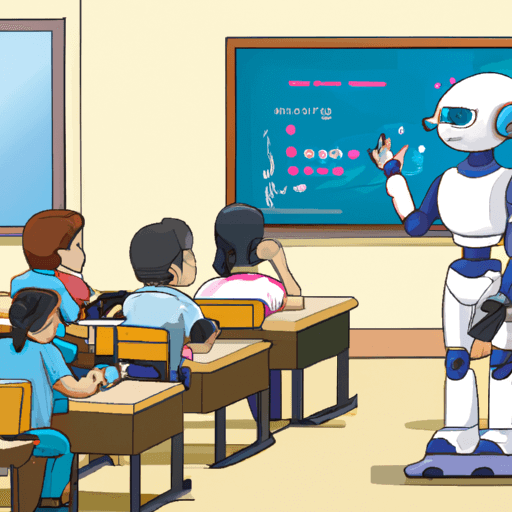Exploring the Potential Impact of Artificial Intelligence on the Future of Education
As technology continues to evolve, artificial intelligence (AI) is becoming increasingly popular in the education sector. AI offers the potential to revolutionize the way students learn, by providing personalized learning experiences and tailored instruction. But while AI has the potential to significantly improve student learning outcomes, it also raises important ethical questions. In this article, we will explore the potential advantages and disadvantages of using AI to improve student learning outcomes, as well as the ethical considerations that come with relying on AI for educational purposes. Finally, we will offer our own predictions on the role technology will play in the future of education.
Advantages of AI in Education
The use of AI in education can offer a number of potential advantages. For example, AI can provide personalized learning experiences, tailored to each student’s individual needs. AI can also provide more targeted instruction, allowing teachers to focus on areas where students are struggling. Additionally, AI can help to automate certain tasks, such as grading, freeing up teachers’ time for more meaningful interactions with students.
Disadvantages of AI in Education
While there are potential advantages to the use of AI in education, there are also potential disadvantages. For example, AI systems can be expensive to set up and maintain, and may require significant resources to implement. Additionally, AI systems can be susceptible to bias, and may not be able to accurately assess or respond to the needs of all students. Finally, AI systems may not be able to effectively measure qualitative outcomes, such as creativity or critical thinking.
Ethical Considerations
The use of AI in education also raises important ethical considerations. For example, there are concerns that AI systems may be used to track and monitor students’ activities, which could lead to a loss of privacy. Additionally, AI systems may be vulnerable to hacking, which could lead to the misuse of student data. Finally, there are concerns that AI systems could be used to replace teachers, leading to job losses in the education sector.
Predictions for the Future
While it is impossible to predict with certainty what the future of education will look like, it is likely that technology will continue to play an increasingly important role. AI systems are likely to become more widely used in the classroom, offering personalized learning experiences and targeted instruction. Additionally, it is likely that there will be a focus on using technology to improve access to education, particularly in underserved areas. Finally, it is likely that ethical considerations will remain at the forefront of discussions around the use of AI in education.
Conclusion
AI has the potential to revolutionize the way students learn, offering personalized learning experiences and tailored instruction. However, the use of AI in education also raises important ethical considerations, and it is important to consider the potential advantages and disadvantages before relying on AI for educational purposes. Finally, it is likely that technology will continue to play an increasingly important role in the future of education, and that ethical considerations will remain at the forefront of discussions around the use of AI in education.

















Comments
Leave a Comment